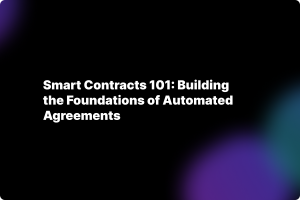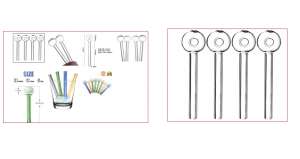The world of finance and asset management is undergoing a transformative shift. Real-world assets (RWAs), ranging from real estate and commodities to precious metals and art, are traditionally managed in a centralized manner. However, blockchain technology is changing this, offering a decentralized framework that could redefine how these assets are stored, traded, and transferred across the globe. The concept of decentralizing real-world assets (RWAs) using blockchain technology is rapidly gaining traction. But while the promise of this integration is vast, there are also significant challenges to overcome. This blog post delves into both the potential and hurdles of incorporating blockchain into RWAs and examines how Blockchain development services can help address these challenges.
The Promise of Decentralization in Real World Assets
The integration of blockchain with real-world assets holds numerous benefits that could revolutionize how traditional asset markets operate. Blockchain, known for its decentralized nature, offers a platform that can significantly enhance asset transparency, security, and efficiency.
1. Transparency and Trust
One of the most compelling advantages of decentralizing real-world assets on the blockchain is the transparency it offers. Blockchain is inherently transparent, as it provides a public ledger that records every transaction. This is particularly significant in asset markets, where transparency is often a concern. For example, when a property is sold or leased, the ownership and transaction history are visible to anyone who has access to the blockchain. This creates a level of trust that is often lacking in centralized systems, where data manipulation or opacity can lead to fraudulent activities.
2. Security and Fraud Prevention
Another key promise of using blockchain in RWAs is the enhanced security it brings. With its cryptographic nature, blockchain makes it nearly impossible to tamper with or forge asset records. In traditional systems, assets such as real estate or art are subject to fraud through paperwork manipulation, title disputes, or fake documentation. However, blockchain eliminates this risk by providing an immutable record of ownership and transaction history.
Blockchain-based tokenization further enhances security by creating digital representations of physical assets, which can be securely stored and transferred across the network. This minimizes the risks associated with asset theft, misplacement, or forgery.
3. Increased Liquidity
Real-world assets, especially illiquid ones like real estate or fine art, are often hard to trade or transfer due to legal or market barriers. Blockchain development services can enable the tokenization of such assets, breaking them down into smaller, tradable units that can be bought and sold more easily. Tokenization refers to the process of creating a digital token on the blockchain that represents ownership of a physical asset. This process opens up asset ownership to a broader pool of investors, enhancing liquidity in markets that have traditionally been slow or opaque.
For instance, rather than selling an entire piece of real estate, a property could be tokenized into several units, allowing multiple investors to own shares of the property. This not only democratizes access to high-value assets but also provides liquidity in markets that have typically been illiquid.
4. Lower Transaction Costs
Blockchain technology significantly reduces the cost of transferring and managing assets. Traditional asset management systems often require intermediaries, such as brokers, notaries, or banks, to facilitate transactions. Each intermediary introduces additional costs and inefficiencies. Blockchain, on the other hand, allows for peer-to-peer transactions, cutting out the middlemen. This results in reduced transaction fees and faster processing times, making asset management more cost-effective and efficient.
For businesses and individuals who have previously faced high transaction fees and delays in asset transfers, blockchain offers a more affordable alternative, with real-time settlement capabilities.
5. Global Accessibility
Blockchain's decentralized nature ensures that anyone, anywhere in the world, can access and trade real-world assets. Traditional asset markets are often geographically restricted and require complex cross-border procedures. However, blockchain bypasses these barriers, allowing global participation. Investors from different parts of the world can invest in assets like real estate, commodities, or even intellectual property without the need for intermediaries, such as banks or lawyers, which are often limited by geographic or jurisdictional boundaries.
Blockchain development services can assist companies in creating global marketplaces for real-world assets, enabling seamless transactions regardless of location. This opens up new opportunities for businesses and individuals to invest in previously inaccessible markets.
The Challenges of Decentralizing Real World Assets
While the promise of blockchain for RWAs is clear, there are several challenges that need to be addressed before it can be fully realized. Integrating blockchain technology into real-world assets requires overcoming technical, regulatory, and market-related obstacles.
1. Regulatory Uncertainty
The regulatory landscape surrounding blockchain and tokenized assets is still developing. Governments around the world are taking different approaches to regulating blockchain technology, with some embracing it and others imposing restrictions. The lack of clear regulations on tokenized real-world assets creates uncertainty for businesses and investors who are looking to adopt blockchain-based solutions.
For example, questions around how tokenized assets are taxed, who has legal ownership, and whether existing laws apply to digital tokens are all issues that remain unresolved in many jurisdictions. To fully unlock the potential of RWAs on the blockchain, governments will need to establish clear frameworks that provide legal certainty and protect consumers from fraud and abuse.
2. Technical Complexity
Blockchain technology is still relatively new, and integrating it with traditional asset markets presents significant technical challenges. First, there is the complexity of tokenizing physical assets. To tokenize an asset, its ownership, value, and other relevant details must be digitized and securely recorded on the blockchain. This requires sophisticated technologies and secure data management practices.
Additionally, the process of transferring ownership of tokenized assets needs to be streamlined. Smart contracts, which are self-executing contracts with the terms of the agreement directly written into code, play a critical role in automating transactions and ensuring the integrity of asset transfers. However, designing and implementing secure and efficient smart contracts requires specialized blockchain development services and expertise.
For businesses and individuals looking to take advantage of blockchain's potential for RWAs, partnering with the best blockchain development company is crucial. These companies possess the expertise needed to overcome the technical hurdles associated with integrating blockchain technology into real-world asset markets.
3. Scalability Issues
Blockchain, particularly public blockchains, often faces scalability challenges. Public blockchains like Ethereum can experience congestion when a large number of transactions occur simultaneously, leading to slower transaction times and higher fees. This can be problematic for RWAs, where fast and cost-effective transactions are essential.
Several blockchain projects are actively working on solutions to improve scalability, such as layer 2 solutions and new consensus mechanisms. However, until these issues are fully resolved, businesses must carefully consider the scalability of the blockchain platform they choose to implement for RWAs.
4. Lack of Standardization
Another challenge in decentralizing RWAs on the blockchain is the lack of industry standards. Blockchain platforms differ in terms of how they handle asset tokenization, governance, and transaction execution. Without standardization, interoperability between different blockchain networks becomes difficult, limiting the broader adoption of blockchain for RWAs.
Standardization efforts are underway, but until a unified framework is established, businesses and developers may face obstacles in creating blockchain solutions that can seamlessly integrate with existing systems and other platforms. This challenge highlights the importance of working with a trusted blockchain development company that is capable of navigating these complexities.
5. Adoption and Market Readiness
While blockchain technology is growing in popularity, the mainstream adoption of RWAs on the blockchain is still in its early stages. Many businesses, investors, and asset owners remain skeptical about the long-term viability of blockchain for RWAs, especially given the challenges associated with regulation, scalability, and security.
Convincing traditional asset markets to adopt blockchain-based solutions requires education, trust-building, and demonstration of the technology's benefits. This can be a slow process, as many players in the market are resistant to change. However, as blockchain adoption continues to rise and success stories emerge, the market for decentralized RWAs will likely grow.
Conclusion
Decentralizing real-world assets on the blockchain presents a unique opportunity to transform traditional asset management and investment practices. The promise of increased transparency, security, liquidity, and cost-efficiency could fundamentally reshape how assets are owned, traded, and managed globally.
However, several challenges remain, including regulatory uncertainty, technical complexity, scalability issues, lack of standardization, and market readiness. To address these challenges, businesses must rely on expert blockchain development services to build secure, scalable, and compliant solutions that can unlock the full potential of RWAs on the blockchain.
As blockchain technology continues to evolve and gain traction, it is clear that its integration with real-world assets will play a pivotal role in the future of finance. By partnering with the best blockchain development company, businesses and investors can position themselves at the forefront of this exciting and transformative change.





